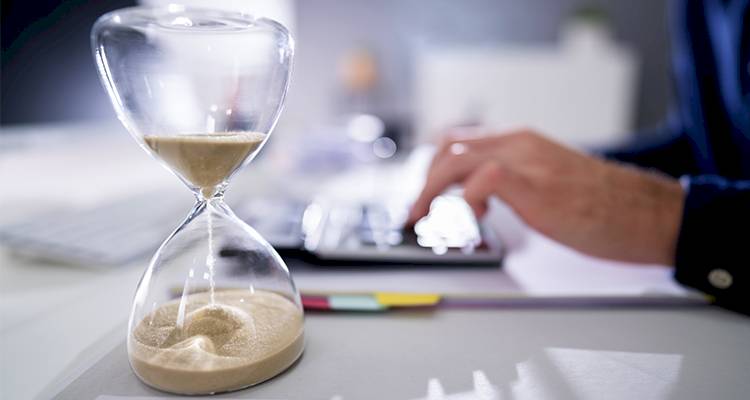Tradespersons Guide to Tax, HMRC & Self Assessments
Are you wondering about tradesperson tax and what you might need to pay? Want to know how to do a tax return?
Whether income tax, PAYE, or otherwise, we have you covered with the following guide.
We’ll also help you get a grasp of the self-assessment business. We'll also look at other relevant topics, such as what a self-assessment is and what you can potentially claim back.
Any tradesperson looking to know the basic ins and outs of taxation and self-assessment will benefit from this blog.

Table of Contents
What Tax Does a Tradesperson Need to Pay?
There are various types of taxa tradesperson needs to pay or may need to pay depending on their work, circumstances, etc. The common examples are income tax, PAYE, national insurance, corporation tax and VAT.
For information on how to pay your tax, see the next full section.
Let's take a closer look at each type:
Income Tax
This is the primary form of taxation; it is a tax calculated as a percentage of your income. The effective income tax that you pay may depend on whether you are eligible for tax credits.
Under the current tax system, those with a low income can avail of a working tax credit, while parents may be eligible for a child tax credit (not to be confused with a child benefit).
However, the current tax credit system will be replaced by universal credit in the coming years.
Before we look at income tax brackets, here is something else you should know:
Tax-Free Personal Allowance
In most cases, tradespeople can make up to £12,570 in total income without needing to pay tax. With that being said, personal allowance can be larger if you have a Blind Person’s Allowance or Marriage Allowance.

There is no personal allowance if you earn more than £125,140, and this applies across every country of the UK.
When Your Tax Is Due And Other Important Details
The deadline to pay your income tax is generally January 31st (you are expected to pay any tax for the prior tax year before or on January 31st. This is your balancing payment, and your second account payment is due on July 31st of the same year.
Any tradesperson, whether self-employed or on the books of another company, is obliged to pay income tax unless they have claimed a tax-free personal allowance or have availed of some other exception.
Income Tax Brackets
For residents in the UK (with the exception of Scotland), the following tax brackets apply:
- 0% rate of income up to £12,570
- 20% basic rate on income from £12,571 to £50,270
- 40% higher rate on income from £50,271 to £150,000
- 45% additional rate on income over £150,000
If you are from Scotland, the following tax brackets apply:
- 0% rate of income up to £12,570
- 19% starter rate on income from £12,571 to £14,667
- 20% basic rate of income from £14,668 to £25,296
- 21% intermediate rate for income from £25,297 to £43,662
- 41% higher rate for income from £43,663 to £150,000
- 46% top rate for income over £150,000
PAYE
Pay As You Earn or PAYE is a system of taxation that is closely linked to income tax. This method is a way of collecting income tax. Income that is subject to PAYE is taxed at the time in which the payment is registered on the relevant payslip.
In some cases, employment earnings are not taxed with PAYE and will only be subject to assessment. For instance, subsistence allowances may exist if the amount is over the set prescribed rate.
PAYE must be paid to HM Revenue and Customs or HMRC by the 22nd of the following tax month (if you are paying on a month by month basis) or the 22nd following the end of a given quarter should you part quarterly.
National Insurance
This is a form of taxation on profits and earnings for the self-employed, employees, and employers alike. Factors that may shape whether you need to pay national insurance as a self-employed tax and the level, and type can include age, earning levels, residence status, and employment status.
National insurance contributions can potentially build your entitled to benefits such as Maternity Allowance or the State Pension, but this would depend on if you are self-employed or an employee.
If you are paid via a PAYE system, your national insurance payments are automatically taken away from your salary. This happens whenever you are paid (weekly, every month, or otherwise).
The more you earn, the more National Insurance you'll pay. With that said, you can't claim more back, even if you make less in other parts of the year.
If you are self-employed, your National Insurance payments will be added up as part of your Self Assessment, and this is paid when you pay your income tax.
Corporation Tax
While corporation tax may seem bound for larger companies, any business that is a limited company is obligated to pay corporation tax on profits. This can apply to profits from the sale of assets, investments, or trading. The rate in the UK stands at 19%.

You must register for corporation tax once you set up a limited company and within three months before you start to trade.
It is essential to keep accurate company accounts and file a company tax return by the deadline and pay the right amount. The deadline to pay corporation tax is nine months and a day after the end of the accounting period.
VAT
Value Added Tax (VAT) generally stands at 20%, which is the standard rate. There is a reduced rate and a zero rate for certain goods. If you make £85,000 or more within any twelve-month period, you are obliged to pay tax.
If you were to sell a product, you would still charge the customer the same price you bought it for, but 20% of their payment would be classed as VAT and would be paid in the form of tax.
Businesses are expected to submit VAT returns on a quarterly basis, and they are due a month and seven days after the end of a given VAT period. If a VAT period ends on March 31st, you would need to pay before May 7th.
What is a Tradesperson Self Assessment? And How to Pay Your Tax
Your tax HMRC self-assessment involves listing your income and expenses and calculating your tax for a given tax year. You must file your paper tax returns by October 31st or January 31st for online tax returns.

You can register via Gov.uk, complete a form CWF1 online, phone the HMRC helpline for newly self-employed, or complete the onscreen form, print it off, and post it to HMRC.
If you have an online account, you can fill out your self-assessment any time before the deadline.
What Business Expenses Can a Tradesperson Claim?
There are many examples of business expenses that you may be able to claim. There are various categories like office expenses, office expenses, travel, legal and financial costs, clothing expenses, marketing expenses, and staff costs, to name a few.

Examples of office expenses are postage, stationery, printing, and computer software. Travel expenses might be fuel/mileage expenses, or vehicle insurance, or services. More information on business expenses for the self-employed can be found on Gov.UK.
Conclusion
In this article, we've laid out the basics of HMRC, paying tax and dealing with self-assessments. Again, it is best to visit Gov.UK for further information, and you can always contact HM Revenue & Customs.
All in all, a tradesperson tax return doesn’t need to be too complicated once you undertake the relevant research and plan things out in advance.
Sources
https://www.gov.uk/government/organisations/hm-revenue-customs/contact?keywords=tax
https://www.simplybusiness.co.uk/knowledge/articles/2021/05/what-can-i-claim-as-self-employed-tax-deductible-expenses/
https://www.unbiased.co.uk/life/small-business/business-tax
https://www.taxback.com/blog/pay-as-you-earn-taxes-in-the-uk








